Due to the peaceful & Tech oriented society, “Norway student visa” is among the top queries for international students.
International students can also find a part-time job in Norway very easily & can legally work for 20 hours per week to support themselves financially.
Moreover, after graduating from a Norwegian university, they can look for jobs in a very attractive job market with low unemployment and high salaries.
This detailed Norway study visa guide will cover almost everything related to the subject.
It will not only answer your every question, but will also prepare you step by step.
Don’t miss the questions answer session at the end.
Norway Student visa
1. Types of Norway student visas for International Students
3. Norway Consulates and Embassies for students
4. Visa process time for Norway student visa
5. Documents Required for Norway Student Visa
6. How to Apply for Norway Student Visa
7. Interview Questions for Norway Student Visa
9. Norway Student Visa Success Rate
1. Types of Norway student visas
There are two types of Norwegian study visas for international Non-Eu/EEA students. Depends on the duration of time the student wants to spend in Norway.
1.1. Norway Schengen visit visa (Short-term Less than 90 days)
1.2. Norway Study permit (Long-term More than 90 days)
Let me explain.
1.1. Norway Schengen visit visa (short term-Less than 90 days)
If the student is applying for a “Short Course” or “Apprenticeship” or “Seminars”, or “Vocational training” or “Exchange & mobility program”, or “University single course” that only requires them to stay in Norway for up to 90 days then the applicant should apply for a
“Short-term Schengen Norway visa”.
However in 90% of the cases students need to apply for Norway study permit. Which is explained below in details.
International students can find Norwegian embassies in their home countries by following this link.
Remember in some countries the visa applications are received by external service providers like VFS Global etc.
1.2. Norway study permit (Long-term More than 90 days)
If the Student is applying for a course that is taking more than 90 days, then they should apply for a Norway study permit.
(It is also called residence permit.)
In most cases, if the student is applying for a full-time Bachelor’s or Masters or PhD (Or research). Their course will take more than 90 days, so they should apply for a Study permit.
International students can find Norwegian embassies in their home countries by following this link.
Remember in some countries the visa applications are received by external service provider like VFS Global etc.
Check our detailed guide about Spain’s student visa.
1.3. Study programs & Noway Visa table
|
Study Programs |
Stay of Duration |
Type of Norway student visa |
|
Exchange & mobility program |
Less than 90 days |
Norway Schengen visit visa |
|
University single course |
Less than 90 days |
Norway Schengen visit visa |
|
Vocational training |
Less than 90 days |
Norway Schengen visit visa |
|
Academic short course |
Less than 90 days |
Norway Schengen visit visa |
|
Apprenticeship |
Less than 90 days |
Norway Schengen visit visa |
|
Full-time Graduate or post-graduate programs |
More than 90 days |
Norway study permit |
|
Exchange & Mobility program, University single course, Vocational training, Academic short course, Apprenticeship |
IF More than 90 days |
Norway study permit |
2. Norway student Visa fee
For a Norway study permit (Long-term visa of More than 90 days) Students need to pay NOK 5900 (497 Euros), While for short-term Schengen visit visas, they need to pay 80 Euros.
Remember in some countries external service providers like VFS Global can also take extra charges of up to 30 euros for their services.
If you want to study in the UK, check out our ultimate UK study visa guide.
3. Norway Consulates and Embassies for students
The Norwegian Directorate of Immigration (UDI) is responsible for issuing visas to applicants all over the world including students.
Norway has a total of 101 diplomatic & Consular centers that are spread all over the world.
Other important sites for students to look up are Government.no and the Study in Norway.
Applicant can find their desired Norwegian embassies in their home countries by following this page of Norway Ministry of Foreign Affairs.
4. Visa process time for Norway student visa
The visa process time for a Norway study permit could depend upon
Applicant’s Nationality,
Norwegian Embassy in that particular region,
The number of applicants,
Type of study permit (University, college, Religious institution, Research, training etc)
and
sometimes specific requirements of the Applicant’s case.
However the standard recommended process time for Norway study permit visa is up-to 3 months.
While the Norway Schengen visit visa could take up-to 15 days.
International students can get the rest of the details here.
How to apply for an Australian study visa? check our step-by-step process.
5. Documents Required for Norway Student Visa
5.2. Passport-size photographs
5.7. English Language Proficiency (IELTS) for Norway Student Visa
5.9. Acceptance Letter for Admission
5.10. Bank statement for Norway Student Visa
5.11. Health (Travel) Insurance
5.14. Receipt of Visa Processing Fee
5.15. Copy of Hotel Reservation & Flight Booking
5.16. Family Registration Certificate (FRC)
5.17. No Objection Certificate (Optional)
5.18. Police Clearance Certificate (Optional)
5.19. Certificates of extracurricular achievements
5.20. Corona Vaccination Certificates
5.21. Marriage and Childbirth Certificate
5.1. Visa Application form
Carefully fill out the correct Norway visa application form & submit it.
Here are the important links for Norway study visa applications.
Remember 90% of the students will need to apply for Norway study permit.
International students can find Norwegian embassies in their home countries by following this link.
Remember in some countries the visa applications are received by external service provider like VFS Global etc.
5.2. Passport-size photographs
The general picture format for a Norwegian student visa is the following.
A: Two recent (within 6 months) passport-size (35x45mm) photos.
B: White background with neutral facial expressions. (Unedited)
C: Avoid uniforms & the head should be 80% in the photo.
D: The applicant should look at the camera.
E: One photograph should be glued to the visa application
while the other should contain the applicant’s full name on the reverse side, & should be attached with a paper clip to the visa form.
The same rules apply to every Schengen country.
5.3. Valid Passport
A: A passport must have at least 18 months of validity from the date of visa application.
B: Applicants will also provide visa copies (if they have any).
C: The passport must have at least two blank pages.
D: All the previous passports must also be attached. (If they have any)
5.4. CNIC
A birth certificate and a National Identity card are mandatory for a Norway student visa.
5.5. Academic Documents
It includes all academic records & certificates.
A. Certificate & transcript of Bachelor’s (If a student is applying for a master’s program)
B. Certificate & transcript of Master’s (If a student is applying for a Ph.D. program)
C. Transcript (DMCs) of Metric & FSC and certificates (if a student is applying for a bachelor’s degree)
D. Proficiency certificate in English from the university.
E. Course summary which explains current courses & previous courses.
F. Provide two Recommendation Letters from your university along with the referee’s detail.
5.5.1. Translated Documents contain:
A. Confirmation from Translation Company/Translator
B. Translation Date
C. Name and Signature of the Translator
D. Translator’s Contact Details
NOTE:
The above-mentioned documents must be attested by respective universities and boards.
For example, in the case of Pakistan, it must be attested by IBCC, HEC, and MOFA (Ministry of Foreign Affairs).
IBCC authority is only responsible for the attestation of metric and inter documents.
Dear offices are present in Peshawar, Karachi, Lahore, Islamabad, and also in other cities of Pakistan.
HEC office attests to Bachelor’s, Master’s, and Ph.D. documents.
Other International students should attest their documents from their own respective ministries & authorities.
If you want to study in Hungary, check out our ultimate Hungarian study visa guide.
5.6. CV
CV is compulsory for the university admission process and optional for embassy interviews.
It should contain all the contact details and academic information.
Students can make a perfect Cv in Europass here in under a few minutes.
5.7. English Language Proficiency (IELTS) for Norway Student Visa
There are no specific mentions of IELTS for Norway student visas on their immigration website. However, IELTS could be compulsory for certain departments in specific Norwegian universities.
Having a strong band in IELTS certainly increases your chances of getting a Norwegian study permit.
For Bachelor’s an overall 6 bands while for a Master’s 7.0 bands is good.
Therefore, Students from NONEU countries is advised to do IELTS (Or TOFEL) to avoid any hassle.
Some very few Norwegian universities may rely on English proficiency certificate, (Which prove that your course of medium throughout your previous studies was English.)
But remember the chance of getting a Norwegian study permit with out IELTS for Non-Eu students is very low.
5.8. Statement of Purpose/Letter of Motivation/Cover letter
This document comprises the following information about the student
A. Previous academic record
B. Employment Status
C. Relationship with your home country
D. Immigration History
E. Economic conditions of the applicant
A statement of purpose (SOP) & letter of motivation (LOM) are almost the same thing & could be interchangeable.
In this letter, you are asked to write about your personal and professional reasons why are you applying for a course or the scholarship and what is your intention of traveling to Norway.
The maximum length of this letter is three pages, But it is advised to make it short & concise to one page.
5.9. Acceptance Letter for admission
It is an acceptable proof of study, internship, and training program at a higher institution in Norway.
This acceptance letter should mention:
That the applicant is accepted to a study program at a Norwegian university.
It also includes accommodation proof and details of the organization supporting the student, plus the duration of studies.
Remember, The place of study must be included on the Norwegian Agency for Quality Assurance in Education’s (NOKUT) list of approved universities.
5.10. Bank statement for Norway Student Visa
According to The Norwegian Directorate of Immigration (UDI), international students must have enough money to pay their expenses for one year or at least one semester (Depending on the duration of the course)
For one year course, the bank statement should be 12,000 Euros (NOK 138084), while for one semester the bank statement should be at least up to 7000 euros (NOK 80565).
International students can declare the amount in a Norwegian bank or in the deposit account of their host educational institution in Norway, or a combination of the above.
Students are advised to contact their host institution for details regarding this arrangement.
Their host institution can also provide them a confirmation letter about their Norwegian block account, which students should staple with their financial documents.
5.10.1 SPONSORSHIP
In the case of sponsorship, the applicant should make an Affidavit of the sponsor, in which they will state their relationship.
The sponsor is also required to show the tax return for the last two years.
Property Details & other Income sources of the sponsor are also required.
If you want to study in china, check out our ultimate Chinese study visa guide.
5.11. Health (Travel) Insurance for Norway study visa
International students from Non-Eu countries are advised to have a private or public health (Travel) insurance which can cover their first few month incase of any medical & Pharmaceutical assistance or emergency.
Later these students can apply to National Insurance Scheme (nav.no), by Filling the Norwegian National Insurance Scheme.
Attach your university admission letter & residence permit copy & Send it to the closest NAV Office.
While the EU/EEA students can use their European Health Insurance Card.
5.12. Medical certificate
Students must do a medical examination and show previous medical history about medication and illness.
They must provide test proof of Tuberculosis and Hepatitis A and B. (Incase of some countries)
Students make sure to regularly contact the embassy in case of any queries.
5.13. Proof of university Legal Fees
It is a receipt or proof of the application fee from the university.
Depends from university to university.
It may be the first-semester fee or the fee for the whole year.
5.14. Receipt of Visa Processing Fee
The student will pay a non-refundable fee and fill out the form.
For Norway study permit (Long-term visa of More than 90 days) Students need to pay NOK
5900 (512 Euros),
While for short term Schengen visit visa, they need to pay 80 Euros.
Remember in some countries the external service provider like VFS global can also take extra charges up to 30 euros for their services.
5.15. Copy of Hotel Reservation & Flight Booking
The booking confirms the arrival date in a particular country. The hotel reservation shows that a student researched the process.
The host university should mention in their admission letter if they provide accommodation for you.
The student can also provide a rental home contract.
5.16. Family Registration Certificate (FRC)
A family registration certificate (FRC) is a document that tells that the family record of the student is complete in the database of the home country.
This document contains details of the name and information of the parents and siblings.
This document is very much important in case of extending a residence permit or in case of permanent settling in Norway.
International students can get it from their local ministries & authorities.
Pakistani students can get FRC through NADRA offices in Pakistan. They can also apply for it online.
NOTE: Remember for some countries a completely filled family forms for parents and parents-in-law’s- and own family are also required.
For example family forms on the website of the Norwegian embassy in Pakistan-
5.17. No Objection Certificate (Optional)
It also varies from country to country. It is compulsory for some countries and known as NOC.
This letter will include that the student is applying for a student visa of Norway.
Students will return to the country after completing their education.
NOC must be written by the Dean or HOD of the university.
5.18. PCC (Police Clearance Certificate) for Norway student Visa
International students who want to apply for a Norway study permit (Long term student visa of more than 90 days) must submit a document showing a history of a criminal record.
This document must be issued by the country of your residence within five months of starting the visa application.
Generally, PCC can be issued by your local security police station or many international students can also make it online.
Indian students can make it through Passport seva, and Pakistani students can make it in “Police Khidmat Markaz” or the ICTP app or ICTP website.
International Students normally don’t need PCC for Noway Schengen visas, however, it’s better to cross-check the requirement with your local Norwegian consulate.
Here is our detailed guide about Sweden study visas.
5.19. Certificates of extracurricular achievements
These certificates could include internship certificates and experience letters.
The embassy gives extra value to these certificates.
5.20. Corona Vaccination Certificates
Students must complete the COVID-19 vaccination before the interview appointment at the embassy.
The administered vaccines are listed by the WHO (World Health Organization).
5.21. Marriage and Childbirth Certificate (Optional)
The embassy may ask about Childbirth Certificates and marriage certificates.
It is better to bring both childbirth and marriage certificates along with you for a student visa to Norway. (If Applicable)
5.22. UDI Checklist
Applicants should also fill & then sign their UDI’s checklist. (Which consist of list of documents we already discussed here in detail.)
If You have any questions related to your Norway study visa or any other study visa, you can also contact us for a live one-on-one session.
Whatsapp Contact: +393512735708
6. How to Apply for Norway Student Visa
Students can apply For a Norway study visa in 4 easy steps.
6.1. Get an admission letter
First, find your desired courses in Norwegian universities & get an admission letter. International students can use this link to find Universities in Norway.
6.2. Prepare the documents
The next step is to prepare the list of 22 documents we discussed above in detail.
6.3. Fill out the visa application form & pay the fee
The third step is to Carefully fill out the Norway visa application form according to your need & submit it.
Check out The link for the Norway study permit.
Pay 497 Euros For Norway study permit application (Long-term visa of More than 90 days)
While for short-term Schengen visit visas, applicants need to pay 80 Euros.
Remember VFS Global can also take extra charges up to 30 euros for their services.
International students are also advised to check the specific criteria of Norwegian embassies in their home countries by following this link.
6.4. Appointment & Interview
The last step is to book an appointment by following your country-specific Norwegian consulate link for identification and submitting your biometric identifiers (signature, photograph, fingerprints).
The appointment can take up to 15 days & the visa process could take up to 3 months.
After the Appointment wait for the result.
you will be notified through email or phone call.
Below you can also find the possible Norwegian study visa interview questions.
If you want to study in Italy for free, find out our detailed guides about DSU and EDISU scholarships.
7. Interview Questions for Norway Student Visa
There are common questions students face during their visa interviews.
These questions vary from profile to profile and are below:
What is the name of the student?
Tell us about your previous educational qualification.
Explain your purpose for going to Norway?
Did you already search for opportunities in your home country?
Where is the university located in Norway?
What is your course structure or Course summary?
Which course will you start at the university?
Why did you choose this university and subject?
How will this course shape your career?
How did you find this university?
What are your plans after the completion of the course?
When will your course start?
Why did you choose Norway and not another country?
Where will you stay in Norway?
If you want to study in the UK for free, find out our detailed guides about Chevening and Commonwealth scholarship.
8. Frequently asked questions about Norway student visa
Which countries don’t need a study permit for Norway?
Those students who are Nationals of EU/EEA countries do not need a residence permit to stay or work in Norway. However, they are still required to register with the police , if they are staying more than 3 months.
How many hours international students can work on a study permit in Norway?
According to Norwegian immigration authorities, International students can work up to 20 hours a week while studying.
They are also allowed to work full-time during holidays.
How to cover the age gap while applying for a Norway study visa?
Post-graduate applicants can face age gap problems while applying for Norway study visas, it can be justified by giving authentic proof of relevant research or job experience.
It tells the authority that the applicant wasn’t idle during those study gaps but seeking work experience for future studies.
Is IELTS necessary for a Norway student visa?
There are no specific mentions of IELTS for Norway student visas on their immigration website. However, IELTS could be compulsory for certain departments in specific Norwegian universities.
Having a strong band in IELTS certainly increases your chances of getting a Norwegian study permit.
For Bachelor’s an overall 6 bands while for a Master’s 7.0 bands is good.
Therefore, Students from NONEU countries are advised to do IELTS (Or TOEFL) to avoid any hassle.
Some very few Norwegian universities may rely on English proficiency certificates, (Which prove that your course of the medium throughout your previous studies was English.)
But remember the chance of getting a Norwegian study permit without IELTS for Non-Eu students is very low.
Q: what to do, If my Norway study visa get rejected?
Technically, students can appeal for a reconsideration of the visa if they are not satisfied with their study visa decision. Students can appeal here.
Remember, It can be done only in the case when the applicant really thinks that he/she fulfills all the criteria & faced unjustified rejection.
Q: What is the total money estimation for a Norway study visa?
A rough money estimation for an international student, who wants to apply for a Norway study visa is given below.
|
Process |
Money estimation |
|
Visa process fee |
NOK |
|
VFS service charges |
30-40 Euros |
|
IELTS fee |
150-250 Euros. |
|
Bank Account statement |
12,000 Euros (NOK 128887) |
|
Documents attestation from different ministries & authorities |
Upto 100 euros |
9. Norway Student Visa Success Rate
The chances of getting Norway study permit is very high if international students are applying For Masters, its more than 95 %. But if they are applying for Bachelors, then the chances to get a Norwegian study is almost less than 5%.
The common reasons for rejecting Norway study visa application by immigration authorities could be the following.
A: Insufficient funds.
B: Irregularity in studies or less resemblance with the future studies.
C: Lack of English Language fluency
D: Not able to give proper convincing answers during the visa interview.
E: Lack of good communication skills.
If you want to study in Germany for free, find our detailed guide about the DAAD scholarship.
10. Norway student visa (SUMMARY)
1. Take a visa appointment at your local Norwegian consulate & choose the correct category of visa. (As discussed above in detail)
2. Pay the visa fee & provide financial resources and bank statement details.
3. Prepare the list of documents discussed above in detail.
4. Appear at the visa Appointment, and there is a possibility of an interview. Wait for the result, you will be notified through email or phone.
We cover everything in detail, but if you still have any questions, don’t hesitate to ask us in the comments.
If You have any questions related to your Norway study visa or any other study visa, you can also contact us for a live one-on-one session.
Whatsapp Contact: +393512735708
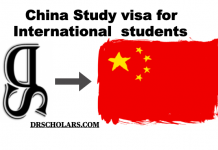

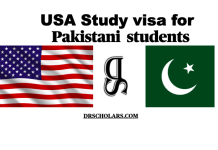
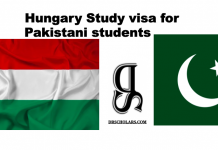
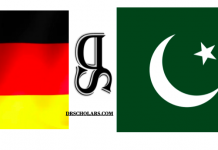
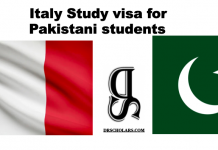






Can I go to Norway and get my study permit shipped to me there if I will not get an answer before my studies start? Also does my study permit get put into my passport or is it seperate?
What is your nationality?
Very very good
It is Nice